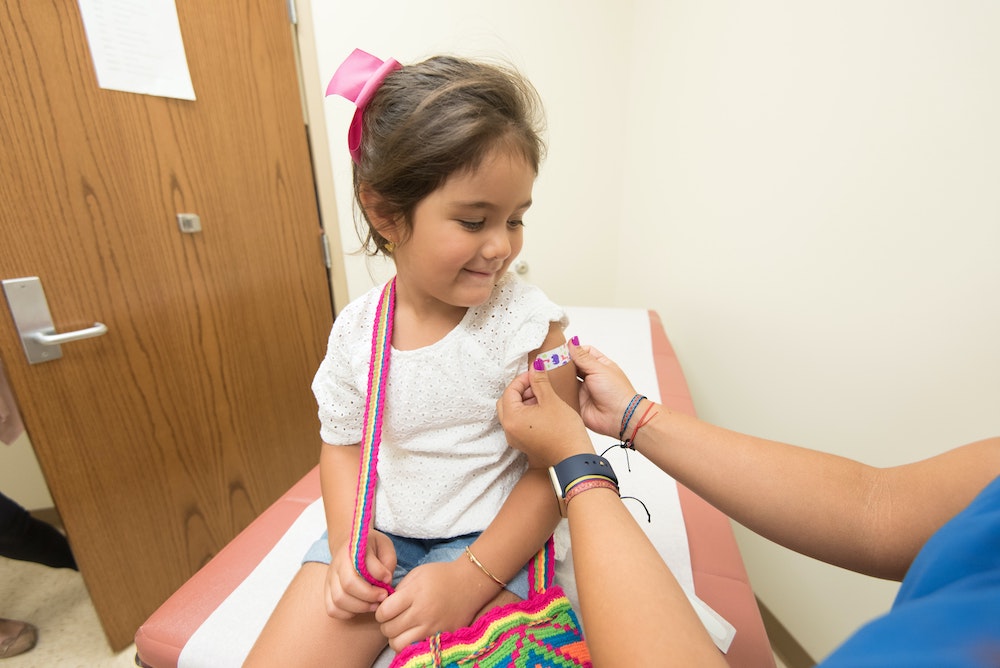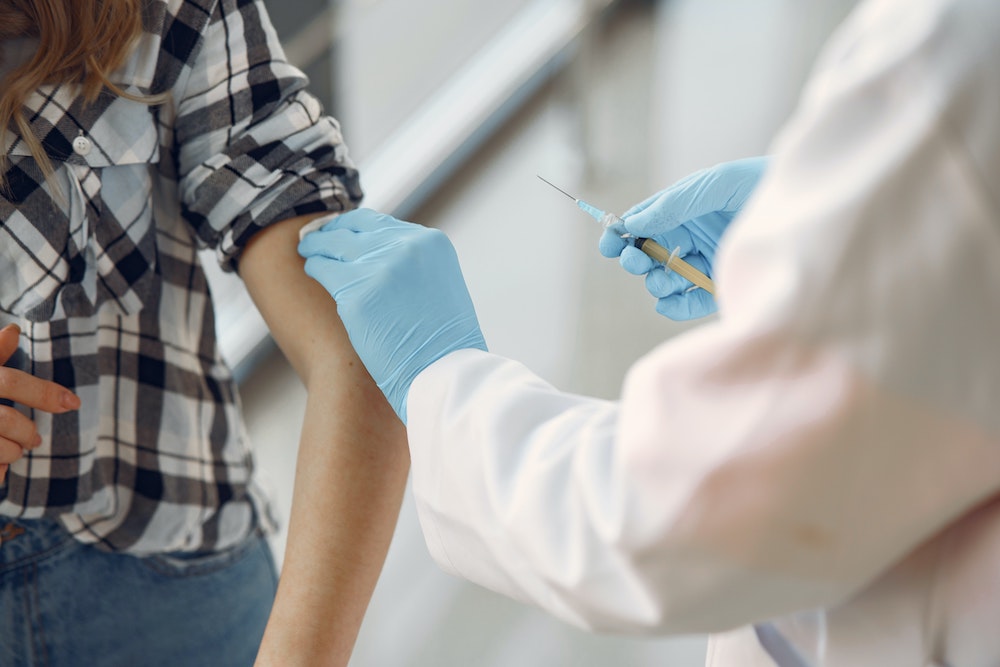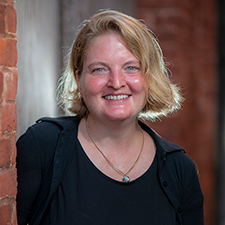President Joe Biden is doubling down on efforts to get more Americans vaccinated after the United States fell short of his original goal of 70% of adults receiving at least one dose of COVID-19 vaccine by July 4.
“Our fight against this virus is not over,” Biden said this past week. “Millions of Americans are still unvaccinated and unprotected. And because of that, their communities are at risk, their friends are at risk, the people that they care about are at risk. This is an even bigger concern because of the Delta variant.”
Dr. Anthony Fauci, the White House’s chief medical advisor on COVID-19, recently warned that the Delta virus variant will create “two Americas.” He explained there is a widening gap between parts of the country with high vaccination rates and low vaccination rates.
“The Delta variant is currently the greatest threat in the U.S. to our attempt to eliminate COVID-19,” Fauci said, adding the Delta variant is “more easily transmissible,” which makes it more urgent than ever that more people roll up their sleeves to get vaccinated. “We have the tools, so let’s use them and crush the outbreak.”
This week, Biden specifically urged more younger Americans to consider getting vaccinated because the Delta variant is spreading at an alarming rate and is potentially more dangerous.
“It seems to me it should cause everybody to think twice,” Biden said. “And it should cause reconsideration, especially to young people who may have thought that they didn’t have to be vaccinated, didn’t have to worry about it and didn’t have to do anything about it up to now.”
Currently, the Centers for Disease Control and Prevention recommends everyone 12 years and older should get a vaccination to help protect against COVID-19. One of the main benefits is people who are fully vaccinated can resume activities they enjoyed prior to the pandemic.
Experts predict children younger than 12 will probably be eligible for the COVID-19 vaccination this fall. Pfizer announced earlier this year that it plans to seek emergency authorization in September for children between the ages of 2 and 11, and results from Moderna’s clinical trial in children as young as 6 months are expected by the end of the year.
While all 50 states have legislation requiring specified vaccines for students in public schools, no state currently requires children to receive the COVID-19 vaccine as a condition of returning to school, according to the National Conference of State Legislatures.
Dr. Laura Williamson, director of the Center for Bioethics and Health Policy at Augusta University, believes the COVID-19 pandemic has revealed the public’s feelings about infection control measures that restrict people’s freedoms.
Williamson said policies that pressure parents to vaccinate their children can undermine traditional clinical ethics standards.
“On the one hand, we want person-centered care, where people consent and can talk through their concerns. It’s about people’s values,” Williamson said. “But on the other hand, we mandate some vaccines.”
Ethically, those two approaches don’t fit together, she said.
“They don’t go well together because, on the one hand, you’re saying, ‘I really care about what you think.’ But, on the other hand, you’ve got somebody’s arm behind their back,” Williamson said. “So, if you’re concerned about consistency in vaccination, which some anti-vaxxers are, they will whip up a storm about this, which is very unhelpful.
“You have to talk through this conflict and work through it in a way that helps explain the need and purpose of the vaccines to people, but also allows for a discussion of values.”

Williamson published an article earlier this year in SAGE Publishing discussing the issue. “The ethical impact of mandating childhood vaccination: The importance of the clinical encounter” explains the ethical debates on the use of vaccination mandates tend to take place at a policy level and focus on the age-old tension between individual freedoms and public interests.
This focus tends to overlook the impact of mandates on people in clinical settings, she said.
“We’re in an ethical climate or culture in which freedom of choice is really important,” Williamson said. “In the context of clinical care, that’s represented in the idea of informed consent. Now, it’s absolutely legally and ethically true that in times of crisis, we can limit those freedoms to protect the community. But we can’t assume that people know that. And so much of the debate about COVID has been about ‘follow the science.’
“Absolutely, follow the science, but it’s not just about following science. As we’ve seen from protests about COVID-19 restrictions, such as masks and social distancing, people are also concerned about values and ethics.”
Failures to give sufficient attention to ethics can send moral shockwaves that reverberate across generations. These waves are not the friend of public health, Williamson explained.
Those concerns cannot be ignored by the medical community if they want to win and sustain community trust, Williamson said.
“Unfortunately, I think those who are hesitant about vaccines at the moment are almost seen as being bad or annoying people. They are not bad people. They just want their questions answered.”
While rates of childhood immunization remain high in the United States, there have been recent outbreaks of preventable diseases, Williamson said.
In October 2019, the CDC reported the highest annual rate of measles in the United States since 1992. Similarly, in 2019 the World Health Organization (WHO) reported across the European region 34,300 cases of measles in 42 countries, Williamson wrote in her recent article in SAGE.
“The outbreak of COVID-19 and the public health social distancing measures requiring people to stay home has had a significant impact on the uptake of childhood vaccinations,” Williamson wrote. “The Health Care Cost Institute in the U.S. reported that in April 2020, the uptake of childhood vaccinations reduced by 60% on average compared to the same time point in 2019.
“Some recovery in uptake was achieved in the months that followed, but it is still lower than required for herd immunity.”
There are several factors that have contributed to the reduced number of children being vaccinated, including difficulty accessing vaccinations, parental hesitancy and those who reject some or all vaccinations.
“The reasons for hesitancy and vaccine rejection are complex, but include: religious and philosophical objections; concerns about vaccine safety; parents feeling they need more information; the belief that vaccines don’t work, are unnecessary or that too many are required,” Williamson wrote. “Also problematic for immunization uptake is the spread of misinformation via social media and the rise in democratization in health contexts that can lead to the prioritizing of service user opinion or ‘expertise’ at the expense of professional knowledge.”

As a response to disease outbreaks, countries are increasingly deciding to use some form of top-down pressure to urge parents to immunize their children, Williamson said.
“I think what’s happened with mandates is that we’ve got scientists who are obsessing about information, and that’s great, because it’s absolutely true that we need to give people accurate information,” she said. “But we’ve got the vaccine refusers or the anti-vaxxers, who are concerned about coercion.”
These concerns are rarely challenged because an open, honest debate never takes place between the two groups in opposition. It is also important to acknowledge that trust in vaccines is impacted by much wider community perceptions about the trustworthiness of health care professionals. People remember poor treatment and can do so for generations, Williamson said.
“Many scientists don’t feel equipped to discuss values and ethics with people who are hesitant about vaccines,” Williamson said. “Therefore, what we need is an interdisciplinary approach to these matters. And that’s why I think places like Augusta University, that have both a health sciences campus and a humanities campus, are really well equipped to lead debates in this area.”
Expanding the conversation is essential to ensure health care professionals and parents are equipped to steer a course through the ethical inertia of the health sciences, as well as the inaccurate anti-vaccination claims they encounter regarding vaccination and mandates, Williamson said.
“The truth is, people need to stop being so frightened about ethics,” Williamson said. “After all, so much of us getting through this situation means we need to do so, not just with good facts, but with open debates and good arguments.”


